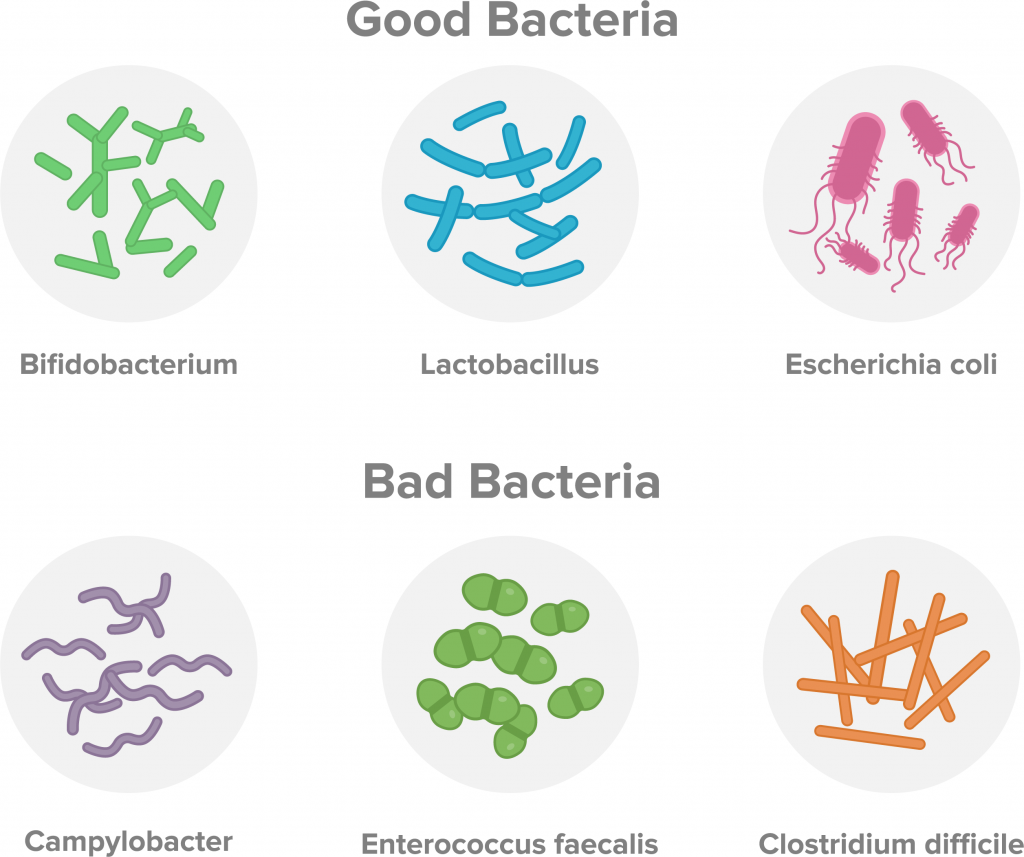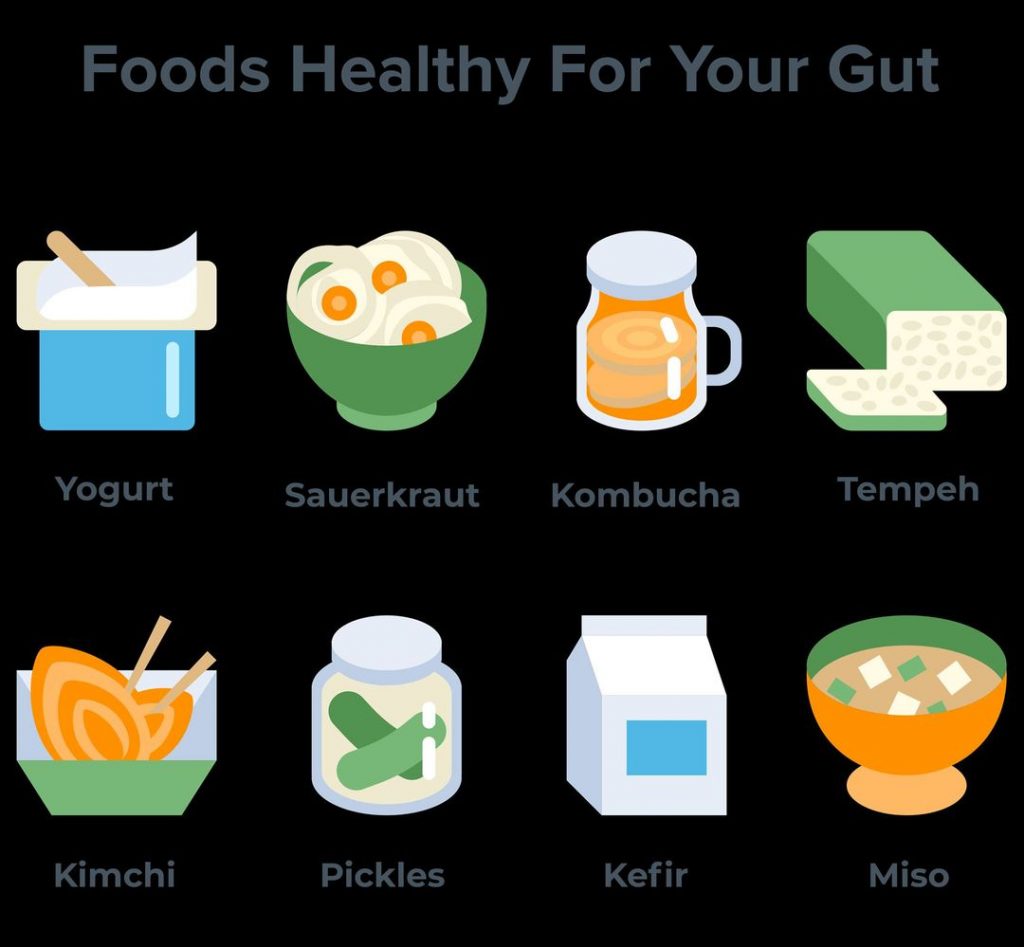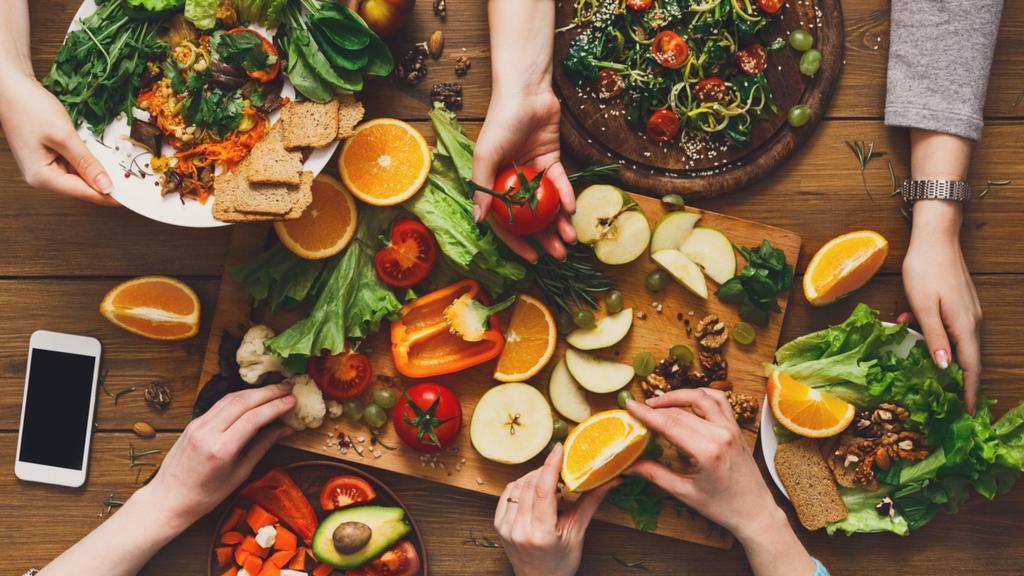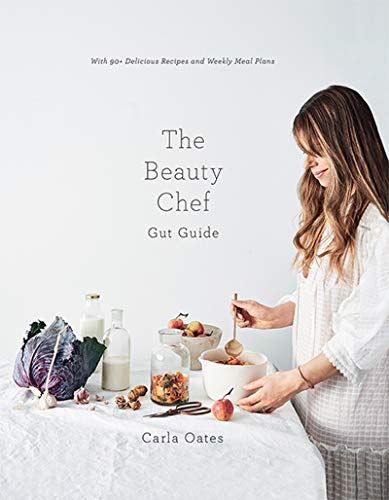Unfortunately, modern-day living is not good for gut health – poor soils, overconsumption of processed food and eating products from animals fed on unnatural feed, the over-prescription of medications, pollution and stress all lead to imbalanced gut flora and inflammation.
INFLAMMATION
Inflammation is the main way our body protects itself from injury, infection, bacteria and pathogens – it’s a response triggered when damage occurs to our tissues that allows the body to localize the damage are and then heal itself (think a swollen sore throat or swelling around an insect bite). The trouble is, if the body is unable to repair itself quickly and heal the damaged tissues, long-term chronic inflammation can occur, which sends the immune system into overdrive and can stress the digestive system.
Put into the content of your gut, if you eat foods that irritate your gut lining over and over again, you’re injuring your gut 3 meals a day, 365 days a year. You may not see the inflammation in your gut, but it’s there, compromising the gut lining, allowing indigestible matter and toxins to flood through into the bloodstream where at some point it may manifest in skin problems, candida, learning difficulties, allergies, lethargy or susceptibility to colds, flu and autoimmune problems. Where there is gut inflammation there will be skin inflammation, and this means an accelerated decline of collagen and elastin as well as susceptibility to skin problems from acne to eczema.
Looking after your digestive system with gut-friendly foods and probiotics and filling your plate with unprocessed, organic, antioxidant-rich fruits and veggies, seeds, nuts, herbs and spices is a great way to keep inflammation and disease at bay. Antioxidants help to mop up free radicals, which cause oxidative stress ad inflammation in the body.

The Art and Science of Eating
When it comes to digesting food efficiently, the problem is not about the food itself, but rather the way we grow it and prepare it and the ratios in which we eat it. Refrigeration, industrialization and our busy, modern, time-strapped lives mean that we have lost much of the knowledge of how to grow and prepare food effectively. Grains, nuts and legumes can be difficult for many of us to digest, but by fermenting and soaking them, as some cultures have done for millennia, you help reduce and eliminate gut-compromising anti-nutrients and break down the hard to digest proteins.
Grain-raised meat contains inflammatory fats. Whereas grass-fed meat contains anti-inflammatory fats. Animals are meant to eat grass not grains: and they are not meant to be pumped with antibiotics and hormones. For those who find eating meat hard on their digestion and avoid it, slow-cooking it with spices in soups and stews will help to make it easier to digest. Eating lacto-fermented foods alongside meals, as has been practiced by cultures for centuries, also aids the digestion process.
Over-farming means that conventional veggies are grown in mineral-depleted soils, which is why choosing organic is so important – plus they are non-GMO, taste better and are richer in skin-boosting plant nutrients. They also come without gut-compromising pesticides and herbicides.
For good health, instead of a meal with a predominance of meat and simple carbs, I prefer 50 percent veggies (non-tubers), 30 percent protein and 20 percent complex carbohydrates, such as sweet potato on my plate. If I am very hungry, I’ll load up on vegetables and foods containing healthy fats such as avocados, activated nuts, and grass-fed meats instead of reaching for a crusty loaf.

Follow Your Gut Instinct
Our guts are a thriving invisible ecosystem: they contain around 100 trillion organisms. Just like our fingerprints, the composition of gut microbiota is unique to each person and the fact that our bodies are comprised of 10 times more bacteria than cells make it unsurprising that bacteria – both good and bad- can powerfully affect our digestive health and overall health.
Our gut is where 70 percent of our immune system lies, we make nutrients (that make collagen), antioxidants (that protect skin), metabolize hormones, neutralize pathogens, make neurotransmitters and detoxifying enzymes, so it’s little wonder that the state of our gut has a profound effect on our skin and health.
A recent study showed that SIBO (small intestine bacterial overgrowth) is 10 times more prevalent in people with rosacea, and dermatitis occurs in a quarter of the people with celiac disease. Countless studies show a link between leaky gut and skin problems, while lack of hydrochloric acid in the gut can contribute to both acne and rosacea. Studies also show that those with good digestion have a healthier fatty acid profile in their skin, making their skin plumper, more hydrated and moisturized.
Good bacteria is your best friend when it comes to beautiful skin, hair and nails and by boosting it with lactic-acid bacteria (found in lacto-fermented foods), you can increase levels of hydrochloric acid and probiotics and help ameliorate and heal your skin complaints. There are numerous clinical trials that link a specific strain of bacteria with positive skin benefits, for example, ‘Lactobacillus acidophilus’ for acne, ‘Lactobacillus delbruckii’ for atopic dermatitis. The beauty of lacto-fermented foods is that you are consuming a broad-spectrum Lactobacillus probiotic, not just one or two strains as might be found in a commercial probiotic product.
The gut is so much more than just a place for digesting food – not only is it intricately linked to the state of our skin, but poor digestion can affect the health and function of every system in the body: the brain, nervous system, hormone balance, reproductive system and even the livers’ ability to promptly detoxify. Unfortunately, if your gut isn’t balanced, the body won’t be able to properly digest and utilize the nutrients from your food. As the skin, hair and nails are the last place to get nutrients (they go to more important organs first), those areas can become starved for nutrition. Additionally, if your gut is out of balance, you won’t be detoxifying optimally, and skin will suffer. Our gut is where our neurotransmitters and feel-good hormones such as serotonin are made. So, by looking after your gut health, not only will you helping your skin age well, but you will feel better about your lines and wrinkles.
Studies show that consuming lacto-fermented foods can influence both mood and acne by reducing systematic inflation, and probiotics (created through lacto-fermentation) can help eliminate disease-promoting pathogenic bacteria in the gut.
Journal Assignment:
How familiar are you with the correlation between gut health, weight loss, and total health?
What do you hope to learn this week?
Are you willing to try new techniques to better your health?
How are you feeling so far?
PS. It is time to book that SECOND consultation with Stephanie!
stephanie@newberry.com



